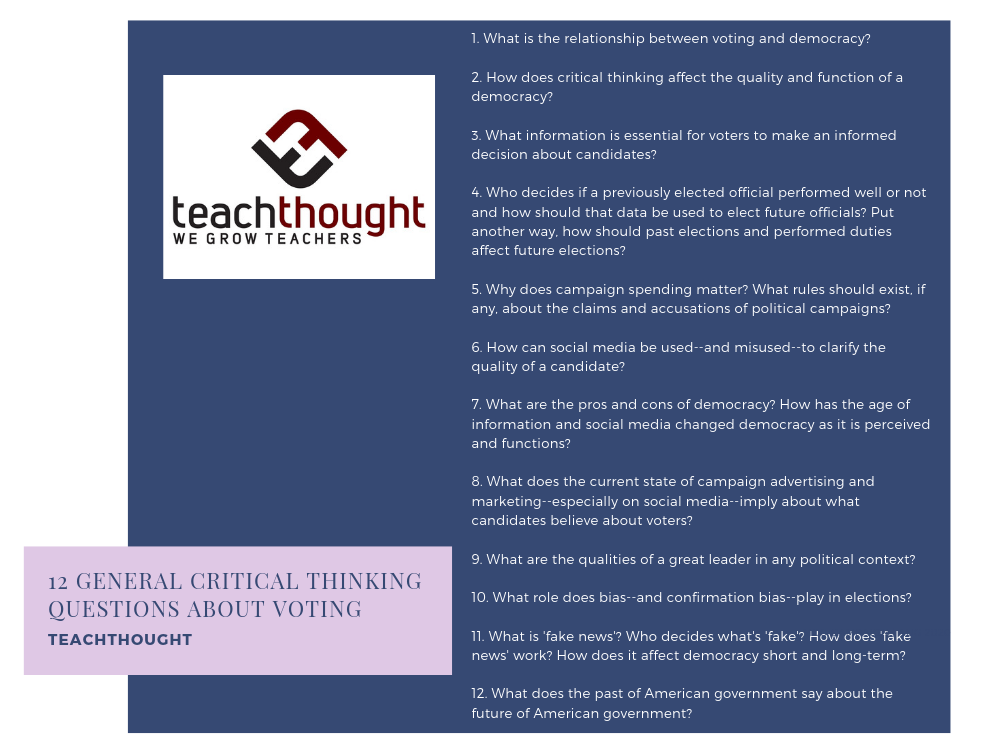
by Terry Heick
Note: This was updates to a 2018 version
Just a fast post that is sufficiently explicit:
It’s almost #electionday!
Some questions for the critical thinking of students: what is the relationship between vote and democracy? How does critical thought affect the quality of a democracy? What information is essential for voters to make an informed decision on candidates? pic.twitter.com/0eodqbrlao
– Arrival (@tachthought) November 5, 2018
See also 6 Questions of critical thinking for any situation
12 general questions of critical thinking about the vote and the government
1. What is the relationship between vote and democracy?
2. How does critical thought affect the quality and function of a democracy?
3. What information is essential for voters to make an informed decision on candidates?
4. Who decides whether an elected official elected officially worked well or not and how should this data be used to elect future civil servants? In other words, how should the past elections and the functions exercised affect future elections?
5. Why are campaign expenses important? What rules should exist, if necessary, on the claims and accusations of political campaigns?
6. How to use social media – and poorly used – to clarify the quality of a candidate?
7. What are the advantages and disadvantages of democracy? How did the age of information and social media change democracy as it is perceived and works?
8. What is the current state of campaign advertising and marketing – in particular on social media – what candidates believe in voters?
9. What are the qualities of a large leader in a political context?
10. What role in confirmation bias and bias – The game of elections?
11. What is “false news”? Who decides what is “false”? How does “false news” work? How does that affect democracy in the short and long term?
12. What does the past of the US government of the US government say?



